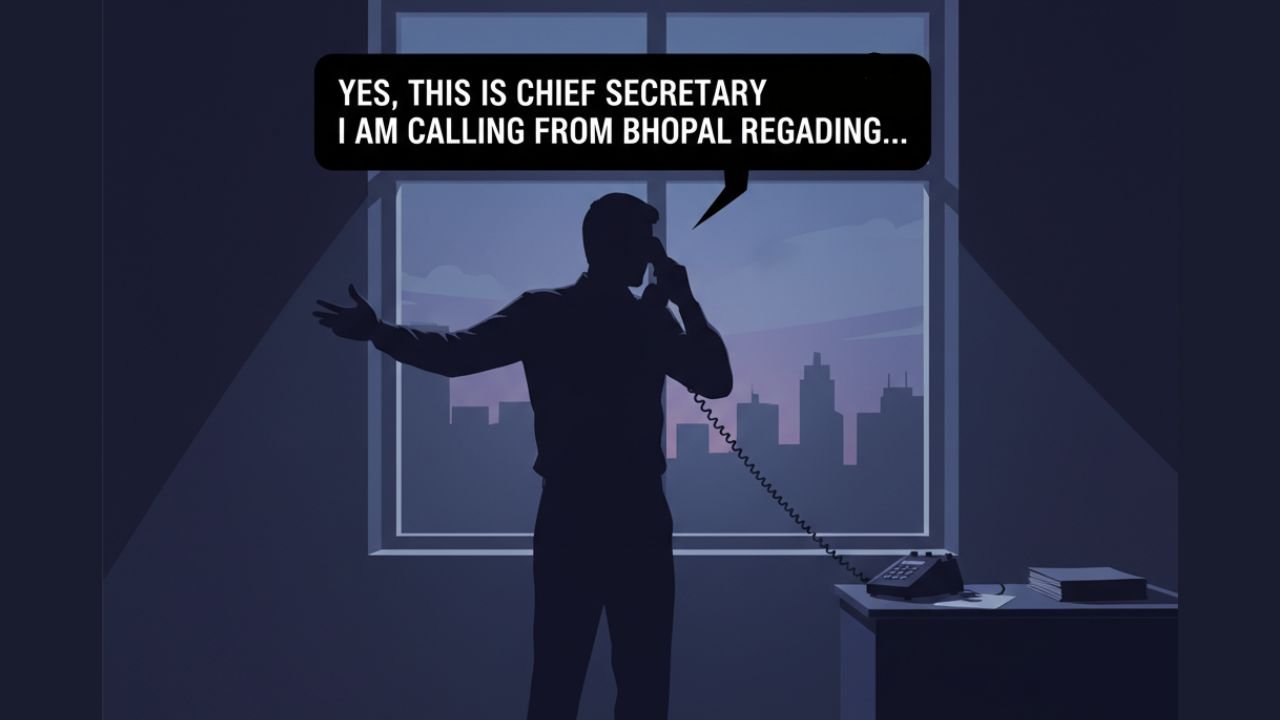SINGRAULI, MADHYA PRADESH — What began as a routine day at the Collector’s Office in Singrauli on October 25 turned into an unusual episode of deception and intrigue. Officials say the district collector received a call from a man identifying himself as the Chief Secretary of Madhya Pradesh, one of the state’s highest-ranking bureaucrats.
The caller reportedly requested an official favor — a job-related intervention — in a tone of quiet authority. But as the conversation unfolded, inconsistencies began to surface. When the collector’s staff attempted to verify the credentials, they discovered that the call had not come from the Chief Secretary’s office at all.
Within hours, the matter was reported to the Vaidhan police station, triggering a criminal investigation that would uncover a small but elaborate attempt to impersonate a senior state official.
The Arrest of a Computer Science Graduate
Police later identified the alleged impersonator as Sachin Mishra, a 24-year-old computer science graduate from Bhopal. He was arrested on charges of impersonation, forgery, and cyber fraud, under Sections 204 and 319 of the Indian Penal Code and Section 66D of the Information Technology Act — provisions that deal with identity fraud and the use of electronic communication for deception.
Investigators also detained Mishra’s father, B.P. Mishra, and an associate named Sachindra Tiwari, both of whom were found to have been in Singrauli on the same day. According to officials, the two men had visited the collector’s office for District Mineral Foundation (DMF)-related work, allegedly at the behest of the younger Mishra.
All three were produced before a local court and subsequently sent to judicial custody. Police say that while the initial evidence points to an act of impersonation with possible financial or administrative motives, the exact purpose of the call remains under investigation.
A Pattern of Digital Deception
Officials familiar with the case described it as “a sophisticated misuse of digital identity and bureaucratic protocol,” underscoring the growing challenge of cyber-enabled impersonation in India’s governance structures.
Recent years have seen a rise in “official impersonation” scams, in which fraudsters pose as senior officers, judges, or politicians to seek favors, extract money, or gain access to classified information. Many such schemes rely on caller-ID spoofing, social engineering, and insider knowledge of government functioning.
Police sources said that the accused may have attempted to use the false identity to influence administrative decisions or secure employment opportunities, though no monetary transaction has yet been established.
Investigators are examining call records, digital devices, and correspondence to determine whether the act was an isolated prank or part of a coordinated attempt to manipulate official channels.
Officials Urge Caution as Probe Expands
The Singrauli police have not ruled out the possibility of larger networks behind the impersonation. “This appears to be more than a prank,” one investigator said on condition of anonymity. “We are exploring whether others had prior knowledge or participation.”
District authorities have also initiated an internal review of communication protocols to prevent similar incidents in the future, emphasizing the need for independent verification of official calls before acting on directives.
The case has stirred discussions within Madhya Pradesh’s bureaucratic circles about the vulnerability of digital and telephonic communication systems in the age of deepfakes and caller ID spoofing — where trust, once assumed, must now be verified.


